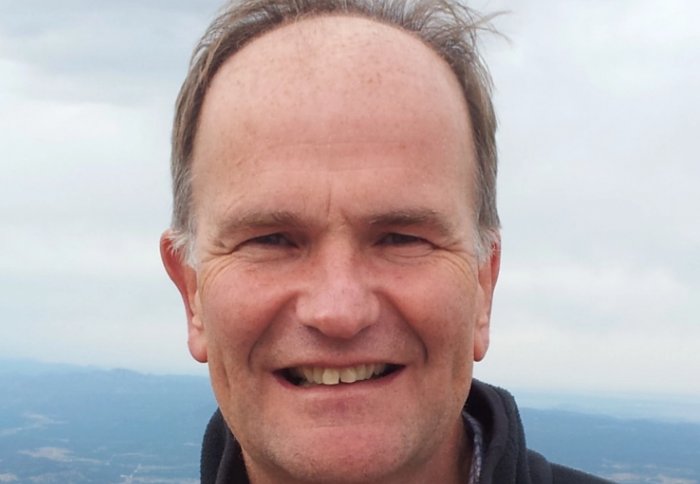Professor Graham Williams is the new Society for Endocrinology President

A new era begins for the Society as Professor Graham Williams takes over as President at SfE BES 2016.
Graham Williams is Professor of Endocrinology at Imperial College London and is based within the Division of Diabetes, Endocrinology and Metabolism in the Department of Medicine.
Associate Editor of The Endocrinologist, Amir Sam, finds out more about Graham’s background, reflections and aspirations for the Society for Endocrinology. The full interview will be published in the winter issue of The Endocrinologist.
Tell us about your background
I worked as an SHO in Kidderminster and did my general medicine rotation at the Queen Elizabeth and Birmingham General Teaching Hospitals. I then got an MRC Training Fellowship with Michael Sheppard and Jayne Franklyn in Birmingham to work on thyroid hormones. I did a year of my PhD there and then completed it at Harvard Medical School with Reed Larsen and Greg Brent at the Brigham and Women’s Hospital in Boston, where I also did some of my post-doctoral training.
I came back with an MRC Clinician Scientist Fellowship and started as a Lecturer in Birmingham with a completely empty lab and had to start from nothing! About six months before I left Boston, I had a meeting with Reed, who was very happy to support me but said that I shouldn’t work on the same subject that he was working on because it was too small a field and it was important I develop my own independence. He urged me to read the literature and find a new area to pursue.
I had been working on the biochemistry of transcriptional activation by thyroid hormone and retinoid X receptors and wanted to apply the basic science to clinically and physiologically important questions. I decided to find a relevant thyroid hormone responsive target tissue that wasn’t being studied; most people were working on pituitary, heart and liver and other labs were getting into the brain. I spent a lot of time talking to various people and eventually settled on the skeleton, a clearly important target organ that had not been investigated in the context of thyroid hormones in any detail. Having not known anything about bone, I had a blank canvas and started from scratch! In 1995 I was approached by Raj Thakker and James Scott to move to Hammersmith as a senior lecturer.
When did you know you wanted to be an endocrinologist?
When I qualified from medical school I was all set to do surgery, but realised pretty quickly that I did not have the dexterity to be any good. My first house job was in endocrinology at the Queen Elizabeth Hospital in Birmingham with David London. At the time there were some really fascinating cases, and working with him got me enthused and hooked on endocrinology straight away. He was definitely the biggest influence on my career selection.
By the time you finish your term of office as President, you will have held major roles at the Society for Endocrinology for over a decade. How has the Society changed over the time?
The financial aspect of the Society has substantially increased over time. When I took over the treasurer’s role the gift aid to the Society from Bioscientifica was around £100,000 per year, and when I ended my term as treasurer it had grown to about £1 million per annum. The Society has grown incredibly in terms of its diversity; it is reaching out further to different countries and continents in a way that was never possible and is now a very professional and superbly run organisation.
How do you see the Society developing over the next few years?
We have a much greater role in education and the development of opportunities for young endocrinologists. I don’t think my plans for the future will be to fix anything in particular because I think the Society is functioning extremely well. We need to develop it further along these roles for the benefit of the next generation. We have to support our younger scientists and clinicians, retain them and hopefully attract more people to the discipline with the ultimate aim of benefiting our patients and endocrine science. We also need to strengthen our international collaborations, both scientifically and clinically.
This article has been adapted from the Society for Endocrinology blog post 'Meet your new Society President', and republished here with permission.
An extended interview with Professor Williams will be published in the winter issue of The Endocrinologist.
For further information, visit the Society for Endocrinology website and blog, The Endocrine Post.
Article text (excluding photos or graphics) © Imperial College London.
Photos and graphics subject to third party copyright used with permission or © Imperial College London.
Reporter
Ms Genevieve Timmins
Academic Services